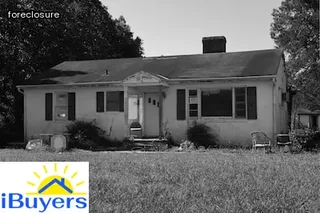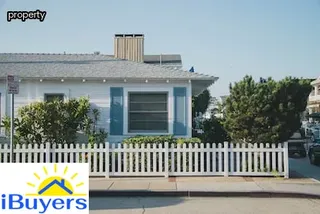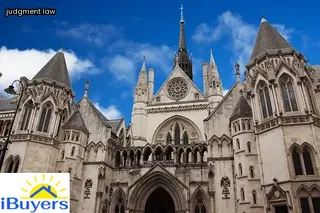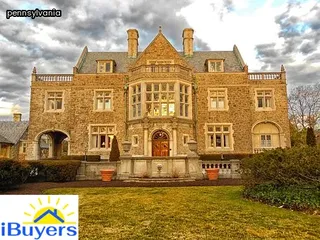Mortgages are an important tool for homeowners in Pennsylvania, allowing them to purchase a home without having to pay the full cost up front. Different types of mortgage loans exist in the state, including fixed rate and adjustable rate mortgages.
Fixed rate mortgages have an interest rate that is set at the beginning of the loan term and will remain at that level throughout the length of the loan. On the other hand, adjustable rate mortgages start with a lower interest rate that may increase or decrease over time.
Generally speaking, fixed rate mortgages offer more stability than adjustable rate mortgages. Additionally, it is important to understand any restrictions or fees associated with a mortgage before signing any paperwork.
By understanding all aspects of your loan agreement you can make sure you are getting a good deal and protecting yourself from potential foreclosure in Pennsylvania.

A Deficiency Judgment in Pennsylvania is a court order that allows creditors to collect from a borrower the remaining balance after their property has been sold at a foreclosure sale. This amount can include all sums still owed on the loan, such as interest, fees, and costs associated with the foreclosure proceedings.
Once a Deficiency Judgment is entered by the court, the creditor may then pursue collection of the unpaid debt through garnishment of wages or other means. It is important to note that Pennsylvania law limits how much of a borrower’s wages can be garnished and prohibits creditors from taking certain types of property, such as furniture or tools used for work purposes.
Additionally, while a Deficiency Judgment may remain unsatisfied for an extended period of time, it continues to accrue interest until it is paid in full. As such, borrowers should take proactive steps to prevent foreclosure and understand their rights when dealing with creditors in order to protect their financial future.
Homeowners in Pennsylvania have rights under both state and federal foreclosure laws which can help prevent the loss of their home. Foreclosure is a legal process through which a homeowner’s lender, usually a bank or other financial institution, recovers their loan principal by seizing and selling the home, often at an auction.
It is important for homeowners to be aware of their rights as they can use them to prevent losing their home due to foreclosure. For example, it is illegal for lenders to threaten or physically harm the borrower, try to force them out of the property before foreclosing, or pursue additional legal action such as criminal prosecution if the homeowner defaults on payment.
Homeowners may also be able to modify or refinance their loans with the lender if they are unable to make payments. Additionally, mortgage servicers must provide borrowers with written notice before initiating any foreclosure proceedings and offer assistance programs as well.
Finally, both state and federal law requires lenders to provide homeowners with accurate information about any debt owed so that they can make informed decisions about how best to prevent foreclosure and remain in their homes.

It is important for Pennsylvania homeowners to understand their rights and the foreclosure laws in their state. Foreclosure can be a stressful experience, so it is helpful to know what steps you can take if you are facing foreclosure.
In Pennsylvania, lenders must follow the guidelines outlined in the Fair Foreclosure Act before taking any action against a homeowner. For example, lenders must provide at least 45 days of notice to borrowers before initiating foreclosure proceedings.
If a borrower cannot make payments during this period, the lender may be able to work out a repayment plan or loan modification. Additionally, Pennsylvania law requires that all foreclosures be conducted through the court system unless they are approved by a judge in an uncontested hearing.
This means that borrowers have an opportunity to present their side of the story and potentially prevent their home from being seized by the lender. Additionally, if a homeowner has obtained financing through certain government programs such as FHA or VA loans, they may qualify for additional protection under federal law.
It is important for Pennsylvania homeowners to understand their rights and obligations when it comes to foreclosure so they can take action when necessary and protect themselves from potential financial hardship.
In Pennsylvania, the foreclosure process begins when a homeowner is unable to make their mortgage payments. A lender will then file a Complaint in Court of Common Pleas against the borrower.
The borrower will then receive an official Notice of Intent to Foreclose containing details of the foreclosure proceedings. This notice typically includes information about how much the homeowner has to pay to bring their loan current and when the payments must be made by.
If those payments are not made by the specified date, then a Writ of Possession will be issued, allowing the lender to take possession of the home and begin selling it at a sheriff's sale. Knowing your rights as a Pennsylvania homeowner can help you prevent foreclosure from occurring in the first place.
It is also important to understand all aspects of the foreclosure process so that homeowners can better protect themselves and their property during this difficult time.

Navigating the foreclosure process in Pennsylvania can be a daunting task, and it is important to understand the pre-foreclosure steps and procedures. The first step for homeowners facing foreclosure is to contact their lender to discuss their financial situation.
In Pennsylvania, lenders must provide borrowers a Notice of Intent to Foreclose at least 30 days prior to filing an action. This notice outlines the timeline and next steps for the homeowner.
It is important for homeowners to make every effort to find a solution with their lender, as this can help avoid foreclosure. Once a Notice of Intent has been received, homeowners should look into options such as loan modification, or forbearance agreements that can reduce monthly payments or provide temporary relief.
Another option is refinancing the loan through a different lender - though this may require additional fees or charges. Homeowners should also consider consulting with an attorney or housing counselor who can offer more information about how best to protect their rights during this time.
With the right knowledge and resources, homeowners can take steps towards avoiding foreclosure in Pennsylvania.
Missing a mortgage payment in Pennsylvania can have serious consequences. If a homeowner misses three mortgage payments, they may face foreclosure proceedings in court.
Lenders are required to provide written notice of their intention to file for foreclosure in order to give the homeowner time to seek legal help and explore options for preventing foreclosure. Homeowners who fail to make payments may also be subject to late fees, higher interest rates, and penalties, as well as credit score damage that could make it difficult for them to get future loans.
Additionally, homeowners who miss a payment may be responsible for all costs associated with the foreclosure process including legal fees and any deficiencies resulting from the sale of the home. It is essential that Pennsylvania homeowners know their rights and understand how to prevent foreclosure before missing a mortgage payment.

A breach letter is an official notice sent by a lender to a borrower informing them that they have fallen behind on their mortgage payments and are in breach of their loan agreement. This letter serves as a warning, giving the borrower one last chance to catch up on the payments or risk foreclosure.
Knowing your rights as a homeowner is essential to preventing foreclosure in Pennsylvania. If you receive a breach letter, it's important to understand what it means and how it works so you can take the necessary steps to protect your home.
Breach letters typically provide details about how much money is owed, how long you have to pay off the full amount, and any other applicable penalties the borrower may incur if payment is not made in time. It's also important for borrowers to remember that lenders must abide by certain regulations when issuing breach letters in Pennsylvania, such as providing sufficient time for borrowers to make arrangements for payment before starting foreclosure proceedings.
Understanding these rules can help homeowners better prepare for potential financial crises and prevent foreclosure from occurring.
Responding to preforeclosure notices in Pennsylvania is an important step for homeowners in preventing foreclosure. Knowing your rights and understanding the legal process can help you successfully negotiate with your lender and find a resolution that works for both parties.
It's important to act quickly when you receive a preforeclosure notice; responding promptly increases the likelihood of being able to work out a mutually beneficial solution. You should familiarize yourself with Pennsylvania's foreclosure laws, which include provisions designed to protect borrowers from aggressive collection tactics by lenders.
Additionally, it's important to understand your mortgage terms and rights under federal law, including the right to request a loan modification or forbearance if needed. Homeowners also have the option of selling their home through a short sale or deed-in-lieu of foreclosure, which may be more favorable than going through the full foreclosure process.
Being proactive and understanding the options available can help make responding to preforeclosure notices in PA easier and more successful.

For Pennsylvania homeowners facing foreclosure, reinstating a mortgage before the sale can be an important way to protect rights and avoid displacement. It is critical to understand that the right of redemption—the right to bring a mortgage current after defaulting—is not guaranteed in Pennsylvania.
In order for a homeowner to successfully reinstate their mortgage, they must make all payments due plus late fees and court costs within 21 days of the foreclosure sale date. This means that homeowners need to be knowledgeable about their rights and prepared well in advance of any possible foreclosure sale.
Homeowners should also be aware that they can negotiate with their lender on payment plans or loan modifications prior to the foreclosure sale date in order to avoid displacement. Additionally, Pennsylvania has several government programs available that may be able to help homeowners who are struggling with their mortgages and facing foreclosure.
Knowing your rights and available resources can help ensure a successful outcome when trying to prevent foreclosure in Pennsylvania.
Pennsylvania homeowners facing foreclosure can take advantage of several options to stop or avoid the process. Homeowners should first contact their loan servicer to explore available options, such as a repayment plan, loan modification, or forbearance agreement.
These programs can help prevent foreclosure by temporarily suspending or reducing payments and/or extending the loan term in order to make payments more affordable. Additionally, borrowers may be eligible for a loan refinance program if they have sufficient income and creditworthiness.
Finally, Pennsylvania also offers a variety of state-run programs that provide assistance with mortgage payments and other services to help keep homeowners in their homes. It is important for homeowners to fully understand all of their rights before entering into any agreements with their lender so that they can make informed decisions about their situation.
By taking action early on and exploring all available options, Pennsylvania homeowners can protect themselves from foreclosure and stay in their homes for years to come.

When it comes to preventing foreclosure, homeowners in Pennsylvania have a few different options. One of the most common choices is to let the house go into foreclosure.
This can be both a pro and a con, depending on your individual situation. On the plus side, it can provide you with some much-needed time to regroup financially and find another place to live.
Additionally, after the foreclosure process is complete, your liability for any missed payments or other debt related to the property may be eliminated. However, there are also potential drawbacks to letting your home go into foreclosure in PA.
It can severely damage your credit score in the short term and could remain on your record for several years afterwards. Also, you may still be liable for certain costs associated with the foreclosure process such as attorney fees and title insurance fees.
As with any important decision regarding your finances, it’s best to weigh all of the pros and cons before making a final decision about preventing foreclosure in Pennsylvania.
In Pennsylvania, homeowners who are facing the prospect of foreclosure do not have the same post-foreclosure rights as those in other states. This means that after a home has been foreclosed in Pennsylvania, the homeowner is not entitled to any form of compensation or assistance from their lender.
As such, it is essential for Pennsylvania homeowners to be aware of their rights and take steps to prevent foreclosure before it happens. One way to do this is by creating a budget and sticking to it, as well as taking advantage of any programs or resources that may be available in the area.
Additionally, consulting with a qualified financial advisor or attorney can provide valuable advice and guidance on how best to manage debt in order to avoid foreclosure. Taking these simple steps can help ensure that Pennsylvania homeowners’ rights are protected during any potential foreclosure process.

At the Sheriff's Sale, a public auction is held to sell the mortgaged property in order to satisfy a debt. The proceeds of the sale go towards paying off the delinquent mortgage balance and any other fees or costs related to the foreclosure process.
During this sale, all bidders must have cash or certified funds available for payment. The Sheriff will open bidding with an amount that is equal to the total amount owed on the mortgage but if no one bids that high, bidding can start at a lower price.
If there are multiple bidders, each successive bid must be higher than the previous bidder’s offer until someone agrees to pay what is owed and wins the auction. Afterward, a deed for the property will be given to that person and all remaining bids are then returned to their owners.
It is important for homeowners facing foreclosure to understand their rights throughout this process so they can protect themselves from exploitation.
In Pennsylvania, homeowners have a right to reclaim their property after it has been sold at a Sheriff's Sale. This is done by exercising the redemption period which gives the homeowner a certain amount of time to repay any debt owed and reinstate ownership.
Usually, this period is between 6 months and 2 years depending on the county where the home was located when it was foreclosed upon. During this time, the original homeowner has the right to repurchase their home and regain full ownership by paying off the mortgage plus all associated costs such as legal fees and interest that accrued during the foreclosure process.
Knowing your rights as a homeowner can help you prevent foreclosure in Pennsylvania and take back control of your property.

Property liens are a type of legal claim placed on a piece of property as security for a debt. During or after foreclosure proceedings, it is important for homeowners to understand how property liens affect their rights and the potential sale of their home.
In Pennsylvania, homeowner’s associations may place liens on properties due to unpaid fees. Additionally, the government can place tax liens on properties that have unpaid taxes.
If an individual has defaulted on a loan or mortgage, the lender will often seek to recover their losses by placing a lien against the home. Liens are public records that appear in title searches and can greatly reduce the value of a home when it goes into foreclosure proceedings.
When selling the home during or after foreclosure, any liens must be paid off before other debts associated with the sale can be settled. Property owners should consult with lawyers who specialize in real estate law to better understand how property liens could affect their financial situation during and after foreclosure proceedings in Pennsylvania.
When dealing with unpaid tax bills and liens from a foreclosed home, it's important to be aware of your rights in Pennsylvania. For instance, the Pennsylvania Real Estate Tax Sale Law provides that when a mortgagee or lien-holder forecloses on a property, they are also liable for any unpaid taxes that have been assessed against the property.
This means that if the owner of the property has failed to pay their real estate taxes, the new owner is responsible for paying those taxes before they can take possession of the property. Furthermore, if there are any outstanding liens against the property that were created prior to foreclosure, these must be satisfied before title can pass to the new owner.
It is important to note that these liabilities cannot be discharged by filing bankruptcy and must be paid by either the previous homeowner or the new owner in order to clear title and obtain legal possession of the property. Knowing your rights when it comes to dealing with unpaid tax bills and liens from a foreclosed home can prevent costly surprises down the road.

When facing the possibility of foreclosure in Pennsylvania, it is important to be aware of your legal rights and to know how to seek out help. The first step towards preventing foreclosure is to contact a HUD-approved housing counseling agency as soon as you realize that you are having difficulty making your mortgage payments.
A counselor at the agency will assess your situation and provide advice on how to avoid foreclosure, including negotiating with your lender or refinancing your loan. Additionally, a free lawyer referral service can connect you with an experienced attorney who specializes in foreclosures and will be able to explain the laws in Pennsylvania and advise you on the best course of action for defending against a potential foreclosure.
If a lawsuit has already been filed against you by your mortgage lender, it is critical that you seek legal representation right away so that no time is wasted in filing a response. Knowing what steps to take when confronting the possibility of foreclosure can empower homeowners in Pennsylvania and help them protect their home from being taken away.
In Pennsylvania, the process of foreclosure can take anywhere from three to six months. The foreclosure process begins when the lender files a notice of intent to foreclose with the court and serves it on the homeowner.
The homeowner then has 30 days to respond in writing, stating their intention to contest or settle the foreclosure. If no response is received within this time frame, the court will then issue a decree of foreclosure judgment against the borrower.
After this stage, a sheriff's sale is scheduled by the court and advertised for at least 20 days in a newspaper of general circulation in that county. The property is sold at public auction during this period, and if no one bids higher than what is owed to the lender, then ownership transfers to them.
Once ownership has transferred, an eviction notice may be issued by sheriff’s deputies if necessary. It is important for homeowners facing foreclosure in Pennsylvania to be aware of their rights throughout this process and seek help from legal professionals if needed.

People let their house go into foreclosure for many reasons, including job loss, medical bills, and other unexpected financial circumstances. When an individual or family is unable to make their mortgage payments, they may be at risk of foreclosure.
Unfortunately, many homeowners are unaware of the laws that protect them from foreclosure in Pennsylvania. Without knowledge of their rights and available resources, people may find themselves without a home.
The lack of awareness about foreclosures can cause individuals to feel overwhelmed and unprepared for the process that follows when they are unable to keep up with mortgage payments. Ultimately, this can lead to a situation where people have no choice but to let their house go into foreclosure.
Foreclosure can be a frightening and overwhelming experience for homeowners in Pennsylvania. It’s important to understand your rights and take proactive steps to prevent foreclosure from occurring.
The best way to get out of foreclosure in PA is to be aware of the law, contact a housing counselor, negotiate with lenders, and apply for loan modifications. It’s critical that you are informed of the process and take action as soon as possible if you are facing foreclosure.
By understanding your rights and taking proactive steps, it is possible to prevent foreclosure in Pennsylvania.
Yes, Pennsylvania is a redemption state. According to the Pennsylvania Code Title 68, homeowners who have defaulted on their mortgage payments can redeem their homes within two years of foreclosure proceedings.
This means that homeowners may be able to reclaim their home by paying off the entire amount owed to the lender plus costs and interest. Redemption also applies to any other liens or judgments against the property as long as they were included in the original mortgage agreement.
Homeowners should understand their legal rights and obligations under Pennsylvania law when it comes to preventing foreclosure. It is important for borrowers to know that they can take action before foreclosure proceedings begin in order to protect their rights.
Furthermore, if foreclosure does occur, understanding redemption laws in Pennsylvania can help homeowners understand the process and possibly prevent loss of their home.